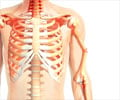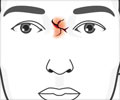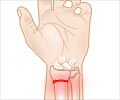Seniors who include a higher amount of dietary protein are protected against fractures of the hip much more than seniors whose daily dietary protein consumption is not up to the mark.
Seniors who include a higher amount of dietary protein are protected against fractures of the hip much more than seniors whose daily dietary protein consumption is not up to the mark, a study has revealed.
The study, which examined the daily protein intake of 946 seniors from the Framingham Osteoporosis Study, found that individuals who were in the lowest 25 percent of dietary protein intake had approximately 50 percent more hip fractures than those who consumed greater amounts of dietary protein (all within normal intakes). Those who suffered hip fractures consumed less than the 46 grams of dietary protein per day recommended for adults."Study participants who consumed higher amounts of protein in their diet were significantly less likely to suffer a hip fracture," says senior study author Marian T. Hannan, D.Sc., M.P.H., co-director of the Musculoskeletal Research Program at the Institute for Aging Research. The study, which was funded in part by the National Institute of Arthritis and Musculoskeletal and Skin Diseases, will be published this week in the online-first edition of Osteoporosis International.
It builds on previous studies that included mostly women and reported a relationship between greater dietary protein intake and decreased risk of hip fracture. While other studies have shown that dietary protein intake is also linked with higher bone mineral density, Dr. Hannan says dietary protein may further protect elderly people against hip fracture by building stronger muscles in the legs. Most fractures occur after a fall, which may be caused by less muscle mass and decreased strength in the lower extremities.
Dr. Hannan, an associate professor of medicine at Harvard Medical School, recommends that older women consume at least 46 grams of protein per day, and that older men consume at least 56 grams of protein daily. This can come from both animal sources (meal, poultry, fish, eggs, milk, cheese and yogurt) and plants (legumes, grains, nuts, seeds and vegetables).
The study did not examine the type of protein consumed.In addition to increased dietary protein, Dr. Hannan says regular exercise to build stronger muscles and better balance, as well as other falls prevention strategies, such as reducing hazards in the home, can help protect seniors against falls and hip fractures.More than 25 million Americans over the age of 50 have either osteoporosis, a disease in which bones become fragile and more likely to break, or osteopenia, a condition in which bone mineral density is lower than normal, but not low enough to be considered osteoporosis.
More than 95 percent of hip fractures in people over the age of 65 are caused by falls and can lead to severe health problems, including decreased quality of life and premature death.Scientists at the Institute for Aging Research conduct rigorous medical and social studies, leading the way in developing strategies for maximizing individuals' strength, vigor and physical well-being, as well as their cognitive and functional abilities in late life.
Advertisement
SAV















